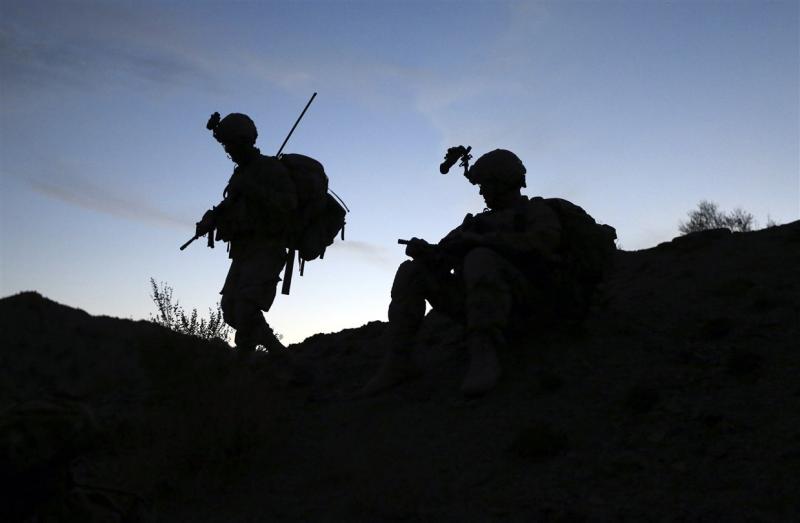Meditation helps veterans with PTSD, Defense Dept. experiment finds



Meditation worked as well as traditional therapy for military veterans with post-traumatic stress disorder in a small experiment sponsored by the Department of Defense.
One method preferred by the Department of Veterans Affairs is exposure therapy, but it doesn't work for everyone and many can't handle what it requires: purposely recalling traumatic events and confronting emotions.
Meditation could be a better choice for some, the researchers said.
The experiment tested meditation against exposure therapy, which involves working with a therapist and gradually letting go of fears triggered by painful memories.
Many vets won't try exposure therapy or drop out because it's too difficult, said Thomas Rutledge, the study's senior author and a Veterans Affairs psychologist in San Diego.
Evidence for meditation "allows us to put more options on the table" with confidence they work, Rutledge said.
The study was published Thursday in the journal Lancet Psychiatry.
About 400,000 veterans had a PTSD diagnosis in 2013, according to the VA health system. The VA already is using meditation, yoga and similar approaches to supplement traditional therapy with PTSD, said Paula Schnurr, executive director of the VA's National Center for PTSD.
While the three-month study adds to evidence supporting these lifestyle practices, Schnurr said, more research is needed to learn how long meditation's benefits last.
"There's no follow-up in this study," Schnurr noted, and one therapist did 80 percent of the exposure therapy so the findings hinge largely on one therapist's skills.
Researchers measured symptoms in about 200 San Diego area veterans randomly assigned to one of three groups. Some learned to meditate. Others got exposure therapy. The third group attended classes where they learned about nutrition and exercise.
All sessions were once a week for 90 minutes.
After three months, 61 percent of the meditation group improved on a standard PTSD assessment, compared to 42 percent of those who got exposure therapy and 32 percent of those who went to classes. When researchers accounted for other factors, meditation was better than the classes and equally effective as exposure therapy.
The researchers defined success as at least a 10-point improvement in scores on a standard symptoms test, given to participants by people who did not know which kind of treatment they'd received. The test measures symptoms such as flashbacks, nightmares and insomnia.
PTSD also can be treated with medications or other types of talk therapy. Many of the participants were taking prescribed medicine for PTSD.
Most of the vets were men with combat-related trauma, so it's not clear whether meditation would be equally effective in women or with other types of trauma.
There's growing interest in meditation in the United States. A government survey last year found 14 percent of adults said they had recently meditated, up from 4 percent from a similar survey five years earlier.
There are many styles of meditation. The type taught to vets in the study was transcendental meditation, or TM, which involves thinking of a mantra or sound to settle the mind.
TM was developed by Maharishi Mahesh Yogi, a guru to the Beatles in the late 1960s. Some of the study authors are affiliated with a university in Fairfield, Iowa, founded by Maharishi. Their role was to oversee the meditation training.


Better than any drug. Should we be using this more? Is there something to be gained for everyone?
Sounds like it will work for some, but, like many other types of therapy, it may not work for everyone. The mind is a very mysterious organ, if you will, and what works for one my not work for the next person. Just like many types of drugs that don't always have the same effect on everyone.
But, my take on it is, if it works even for a few, it is worth trying. Our Vets deserve the best treatment they can get. They have more than earned that right.
It, IMO, is one thing that was very important for me after coming back to the world. Natives have used smudging and the sweat lodge for centuries and I'm sure it was the main ingredient in helping me come back to the world.
Many different peoples in the world have had, and/or do have, their own methods of dealing with many mental and emotional conditions throughout the centuries. Some used herbs, others used group type ceremonies. Shamans, Medicine Men and their counterparts around the world have dealt with the various types of mental and emotional problems that their people experienced.
In fact, many of the older remedies work/worked better than many of the modern types of medication and therapies.
While there is no 'one treatment fits all', there are some that do work for many. And for those that don't work, all doors should be explored to find one that does. Our Vets deserve nothing less. And sometimes, it is not just drugs or psychological treatments that work. Sometimes, someone who will just listen can work where drugs and other methods don't.
But, the really sad part is, many of our Vets are not getting ANY kind of help. And that is where our government is letting them down. IMHO, there is NO acceptable excuse for that happening.
I believe it.